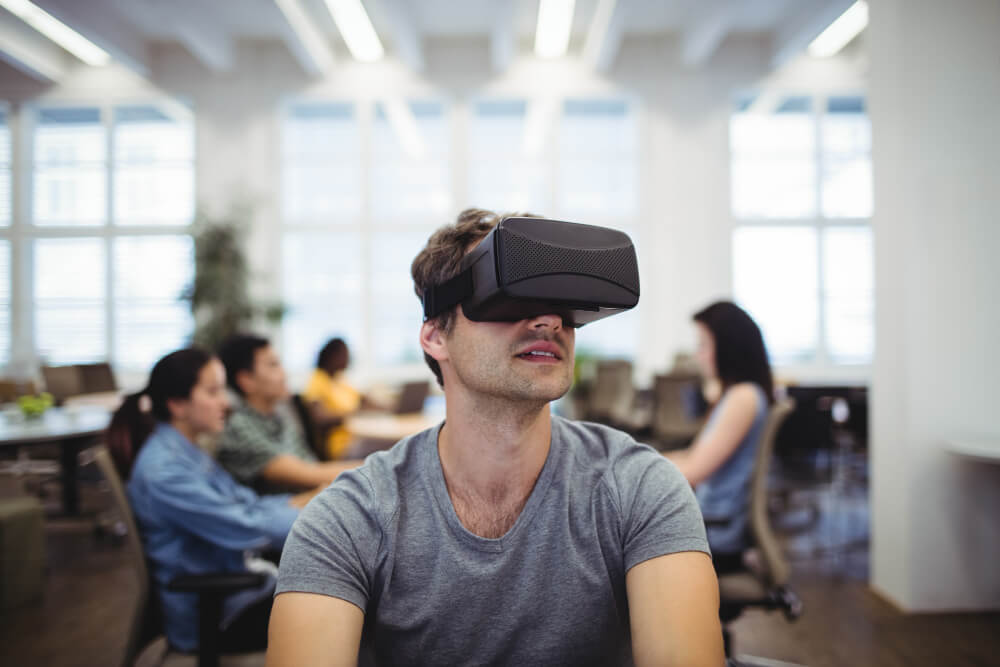5 VR Headset Trends Worth Watching in 2024
Table of Contents:
What are the VR headset trends in 2024 that you need to be aware of? Firstly, it is probable that more enterprise-level software will be created for such devices, making them less gaming-dominated. Secondly, VR will be more widely introduced in sectors such as education and retail. Thirdly, such headsets should become more affordable. Fourthly, we might expect the development of native VR advertising. Finally, the technology used should be developed as well.
Do you wish to discover more about these trends? If yes, read this article as we discuss each in detail here.
The 5 Most Important VR Headset Trends for 2024
All of the abovementioned trends might play a critical role in developing augmented and virtual reality. Therefore, it is good to know about them, as this may help you predict the future and prepare for it. Without any other further ado, let us explore the most important VR headset trends for 2024.
More Enterprise-Level Software
Currently, VR sets are most commonly used for gaming – according to Fortune Business Insights, it had 22.9% of the market share in 2022. However, with an increasing number of businesses utilizing VR for marketing purposes or even to conduct business, we are bound to see a shift in that tendency.
With more companies utilizing virtual fitting rooms, business meetings in the digital realm, and other similar solutions, more specialized, enterprise-level software will be needed. Additionally, this might also lead to the development of corporate VR headsets, as organizations will strive for secure, effective solutions to utilize when shaping the Metaverse to their advantage.
VR Headsets Utilized in More Sectors
This particular VR headset trend is strictly connected to the next one. With the lower prices of such tools, they will become more widely available, thus used in more general sectors. For instance, schools will soon be able to afford VR headsets and utilize them to offer students an enhanced and more insightful learning experience.
Affordable Headsets
The price of VR headsets naturally drops over time. With newer technologies introduced and more affordable models prepared by the leading manufacturers, we should expect an increase in the number of VR headset users in 2024. This will have a major impact on the virtual reality market.
First of all, with more users, VR marketing, such as the one done in Metaverse, will become critical as a large chunk of the market will move away from the old traditional and digital channels to virtual reality. This will mean that using the impact of Metaverse on business will become even more paramount, and operating in virtual reality will no longer be an advantage – it will become a must.
Secondly, a larger number of users will lead to more use cases of VR headsets in different fields, as depicted in the previous trend.
Native VR Advertising
With better and less expensive headsets, businesses will be able to develop native advertising in VR. This includes brand placements along with other content, which can now be observed mainly in gaming.
But, 2024 should bring a shift to this tendency and introduce advertising and branding all across the user’s journey through the virtual world. Due to the more efficient and accessible headsets, we should soon see personalized content marketing served across VR.
Improved Headsets – Software and Hardware
Finally, one to rule them all – the main VR headset trends in 2024 will be connected to hardware and software developments. Improved video quality, eye tracking, wrist trackers that do not restrict our movements – these and many more improvements are bound to be developed in 2024.
With such technology introduced, people will become even more incentivized to purchase new headsets, and brands will have more options to tailor the virtual landscape to their advantage.
Conclusion
Which of these 5 VR headset trends in 2024 interests you most? Which, in your opinion, will accelerate the growth of VR to the largest extent? Feel free to leave a comment and share your thoughts with us!
You may also read: VR Headset Ranking For 2023!
Sources:
How will the shift towards more enterprise-level software impact the VR market?
The transition towards enterprise-level software signifies a diversification of VR applications beyond gaming, which has dominated the market. As businesses begin to utilize VR for marketing, virtual meetings, and virtual fitting rooms, the demand for specialized, secure software and corporate VR headsets will increase. This shift is expected to expand the VR market into various sectors, making VR solutions a critical tool for companies aiming to leverage the Metaverse for business advantages.
What role do affordable VR headsets play in the expansion of VR into new sectors?
The reduction in VR headset prices plays a pivotal role in their adoption across new sectors such as education and retail. As headsets become more affordable, they become accessible to a wider audience, including schools that can use them to enhance learning experiences. This trend not only increases the user base but also encourages the exploration of VR applications in various fields, thereby broadening the impact and utility of virtual reality technology.
How will improvements in VR headset hardware and software shape the future of virtual reality?
Improvements in both hardware and software are set to significantly enhance the VR experience. Developments such as improved video quality, eye tracking, and less restrictive wrist trackers will make VR more immersive and intuitive. These advancements will not only incentivize consumers to purchase new headsets but also enable brands to create more engaging and tailored virtual experiences. As the technology becomes more advanced, the possibilities for its application will expand, further driving the growth and evolution of the VR landscape.
Unlock the future with Mazer: Your innovation partner.

Author: Rafał Siejca
Rafal has over twenty years of corporate experience, including roles at Millennium Bank, Comarch, and leading software teams at PZU, one of Europe’s largest insurance companies. As one of Poland’s few true VR experts with a decade of experience, he ensures timely, high-quality project delivery as CEO and CTO.










